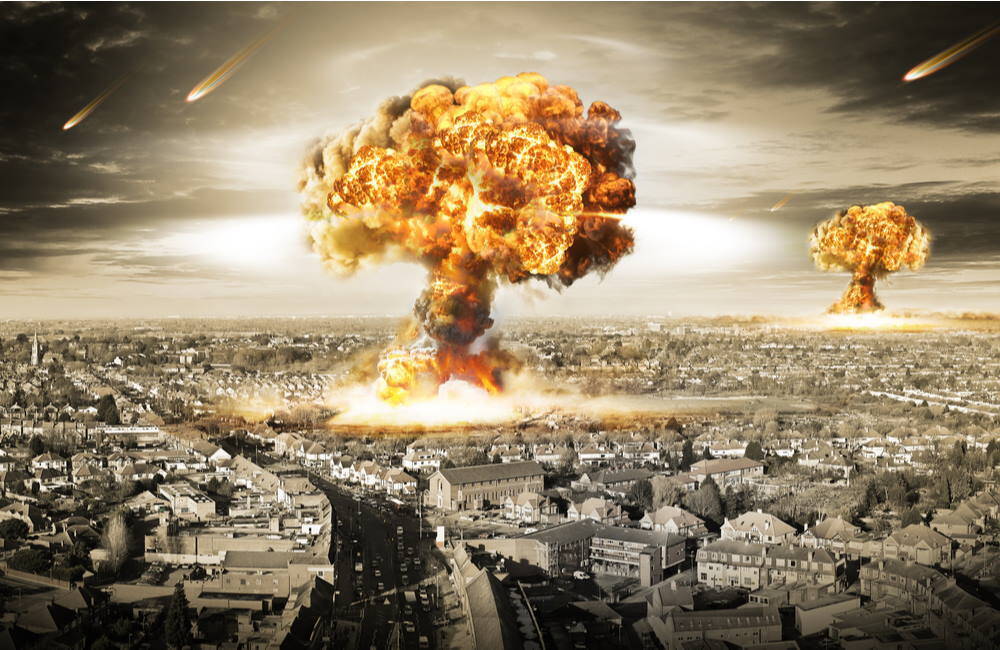No one wants to think about the ramifications of one country using nuclear weapons to attack another, but it’s a possibility we live with every day. The smart choice is to prepare for nuclear war and take the steps necessary to protect yourself and your family.
The threat of Russia using nuclear weapons as part of the war in Ukraine is only one of many nuclear threats in the world. According to Columbia University, the world currently has 14,000 declared nuclear warheads.
For decades, diplomats sought the goal of complete elimination of nuclear weapons. But the university quotes Dr. Irwin Redlener, a professor at Columbia’s Mailman School of Public Health, who said: “There is no putting the toothpaste back in the tube here. I cannot imagine circumstances where we can get verifiable information of elimination of all nuclear weapons on the planet.”
As is the case in most situations, preppers – despite all the myths about them – are once again right. It’s a wise move to prepare for nuclear war.
The Dangers From Nuclear Explosions
The U.S. government thinks enough of the possibility of nuclear warfare to have produced a guide about surviving one, courtesy of the Federal Emergency Management Agency (FEMA). In it, they provide a complete and harrowing list of things you must worry about when a nuclear explosion occurs.
- A bright flash that causes temporary blindness
- A blast wave that can destroy structures and cause death within miles of the blast center
- Radiation from the explosion that can damage cells of the body, leading to radiation sickness
- Fire and heat that impacts people and structures miles from the blast center
- Electromagnetic pulse that can damage electronic equipment miles from the detonation and cause temporary failure of equipment even farther away
- Fallout from the explosion, including dirt and other materials, that can make those outside sick
That’s a lot to be concerned about. No wonder the Japanese created a beast like Godzilla as the living embodiment of a nuclear attack. But much like grid down scenarios and other SHTF situations, there are steps you can take to increase your chances of survival.
Tips to Prepare for Nuclear War
The following looks at steps to take before, during and after a nuclear blast.
Before a Nuclear Blast
- Have a bug out bag and emergency supply kit for every family member (don’t forget the pets).
- Take the time now to identify safe places you can evacuate to in the event of a nuclear explosion. Basements and underground shelters provide some of the best protection. If nothing underground is available, designate brick or concrete buildings you can use.
- Keep in mind that vehicles, trailers and outdoor areas provide no protection.
During a Nuclear Explosion
- Heed warnings and immediately seek shelter inside in the places you have designated near your home, office or along your commute route.
- Stay inside throughout the event. Don’t try to rejoin any family members. The key is to avoid being outside.
- If caught outside, take cover behind anything that might offer protection. If in your car, stop and duck down as low as possible. In all cases, cover your face and other exposed skin areas. Seek shelter immediately after the initial shockwave and before fallout starts (FEMA reports you have about 10 minutes to do this).
After a Nuclear Explosion
- It’s impossible to overstate the importance of getting inside. However, if caught outside during the event, even for a short time, immediately remove your outer layer of clothing once you find shelter to get radiation and fallout away from your body.
- Wash your body as soon as possible, as well as any pets who were caught outside.
- Food stored inside is safe to consume, but avoid eating or drinking anything that was outside during the blast.
At that point, it’s a matter of staying safely indoors until hearing from authorities, or moving if threatened by fire. Take these tips into consideration when you prepare for nuclear war, along with packing all the items you need as you would in any prepper situation. Nothing is guaranteed in any disaster situation. But the most prepared people are the ones with the best chance of survival.







And you Tell me over and over and over again/you don’t believe we’re on the eve of destruction